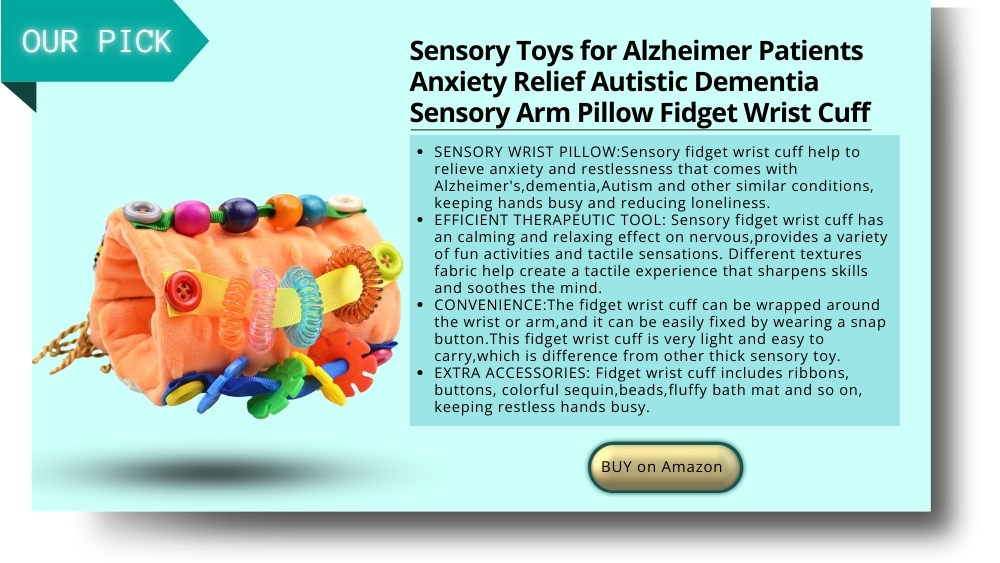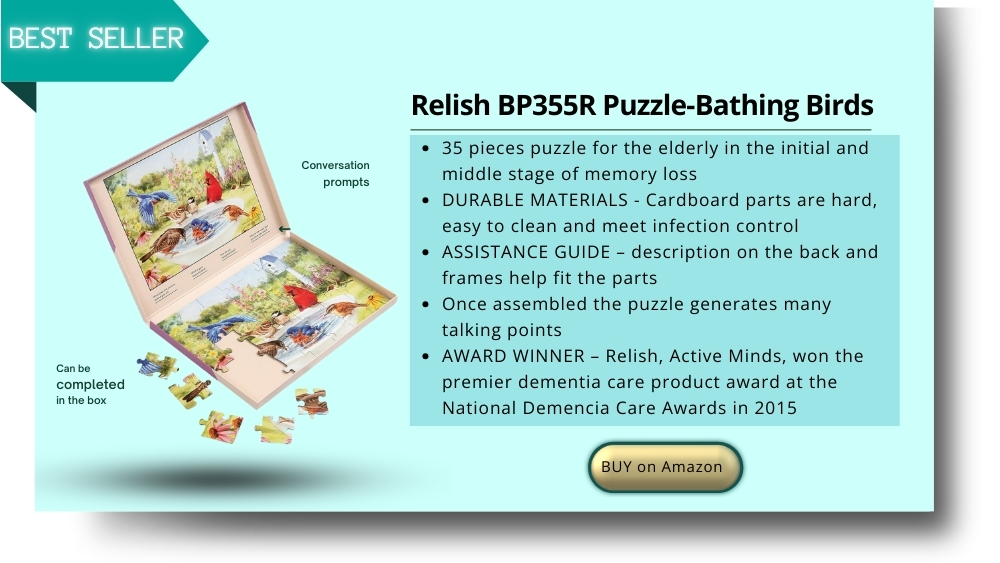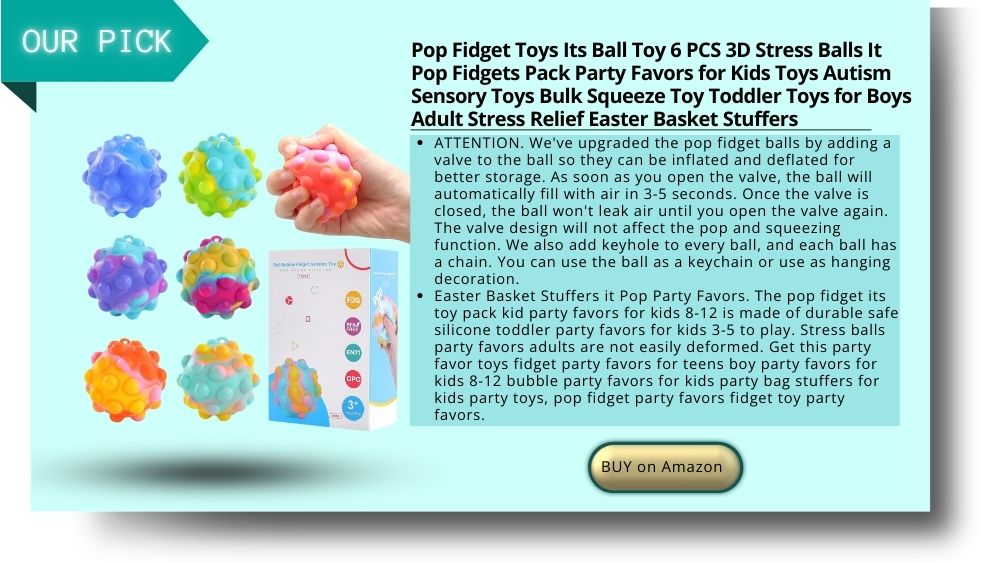You found her reading glasses inside the refrigerator freezer, or you saw utter confusion and panic overtake him in the grocery store. In a phone call, a concerned neighbor, relative, or friend told you that something didn’t seem quite right.
Caring for someone with dementia can be a crushing experience. If the afflicted person is a parent or grandparent, you suddenly find your roles reversed: That person who never forgot your birthdays, cleaned after you when you made a mess, and guided you to adulthood now needs your help coping with dementia.
To stay the course, caring for someone with dementia means resting when you can, being forceful when you must, and reaching out for help when the burden becomes too heavy. Because yes, it will likely become overwhelming at one point or another.

Caring for someone with dementia can be an immensely daunting experience! It is heartbreaking to watch a loved one’s state of health deteriorate and it can be difficult to know the best way to help them. Although it is a difficult situation, there are ways to approach caregiving with compassion, understanding, and kindness.
It is important to remember that those living with dementia are still people with emotions and needs, so it is essential to treat them with respect and dignity. Despite any difficulties, there are many ways to make living with dementia a more manageable and positive experience for everyone involved.

Contents
- 1 Caring for Someone with Dementia
- 1.1 Prefer to listen rather than read?
- 1.2 Establish a Routine for Daily Activities
- 1.3 Provide Reminders and Cues
- 1.4 Simplify Tasks and Activities
- 1.5 Acknowledge and Accept Changes in Behaviour
- 1.6 Reduce Distractions in the Environment
- 1.7 Provide Social and Emotional Support
- 1.8 Offer Assistance with Difficult Tasks
- 2 Conclusion
Caring for Someone with Dementia
In this blog post, we’ll explore some strategies for caring for someone with dementia that can help improve their quality of life and also make life easier for their caregivers. By understanding the needs of the person with dementia and recognizing how to meet those needs best, caregivers can create a better life for both themselves and their loved ones.
Check out these great tips to make caring for someone with dementia a rewarding experience!
Prefer to listen rather than read?
Establish a Routine for Daily Activities
Developing a regular schedule of activities can be an excellent way to make life easier and more enjoyable for someone with dementia! Regular activities ensure that the person with dementia has a sense of purpose, structure, and order throughout the day.
Regular Activities Are a Great Way of Learning and Remembering
When you’re caring for someone with dementia, it is important to plan activities that provide a sense of accomplishment and keep the person physically and mentally active. It gives structure to their days and helps them feel secure, as it reduces any confusion or anxiety. Routines are also beneficial for learning and remembering new activities.
These Routines Provide a Sense of Accomplishment
Set aside time for walks, reading, puzzles, playing music, visiting friends, and other activities that the 0person enjoys. Additionally, it is important to plan for some flexibility in the daily schedule to allow for unexpected changes.
This could include familiar activities, such as baking or gardening, as well as new activities, such as art or music classes. Taking part in these activities can also help to lift their mood and give them a sense of purpose. With a regular routine in place, people with dementia can continue to enjoy life in spite of their diagnosis.

Provide Reminders and Cues
Providing gentle reminders and cues is an essential strategy for caring for someone with dementia. Reminders can come in various forms such as verbal reminders, visual cues, or even a simple note or picture. This can help remind the person to take their medication or perform an activity that is part of their daily routine.
Cues can be extremely helpful for those with difficulty understanding or remembering tasks. For instance, if it’s important for the person to remember to turn off all the lights before bedtime, a visual sign near the light switches can be an effective reminder. This sign might say something like “Turn off the lights before bed” or something more playful like “Let’s not be silly, turn off the lights!”.
This can be a great way to make the task easy to remember, as well as a fun way to engage with the person. Additionally, it can help to keep the energy positive and upbeat, so that the task doesn’t become a chore. With reminders and cues, it is important to keep them simple and consistent.
Reminders and cues are essential for caring for someone with dementia. However, keep them simple and use visual aids or written words to help them remember tasks and activities.
Make sure they’re familiar with the words or drawings and be sure to repeat them often. Additionally, keep the same routine and use the same words each time, as repetition can help those with dementia remember better.
Lastly, try to find ways to make the reminders and cues fun and engaging. If the person enjoys music, for example, you could use a familiar song as a cue. Or if they like animals, use a picture of a favourite pet as a reminder.

Simplify Tasks and Activities
Simplifying tasks and activities can be incredibly beneficial when caring for someone with dementia and their caregivers. By breaking down complex tasks into smaller, manageable steps, caregivers can help reduce the person’s anxiety and improve their sense of control.
It’s important to remember that simplifying a person’s routine doesn’t necessarily mean taking away their independence. Instead, it can actually help them feel more capable and accomplished.

For example, instead of asking the person to prepare a meal, which can be a complex and overwhelming task, caregivers can simplify the process by breaking it down into smaller steps. This might involve finding the necessary ingredients, measuring them out, and setting the table. By giving the person tasks that are manageable and achievable, caregivers can help boost their self-esteem and sense of pride.
It’s important to consider the person’s abilities and interests when giving them tasks. By tailoring the activities to their specific needs, caregivers can help ensure that the person feels engaged and fulfilled. This can also help reduce frustration and stress for both the person with dementia and their caregiver.
When caring for someone with dementia, making the surroundings simpler can also help. This might involve removing excess furniture, pictures, and objects that can be overwhelming and confusing.
Caregivers can also provide a list of activities and the order in which they should be done to help simplify the person’s daily routine. By taking these measures, caregivers can help make life easier for both the person caring for someone with dementia and themselves while reducing stress and confusion.

Acknowledge and Accept Changes in Behaviour
When caring for someone with dementia, it’s important to be mindful of and accept the changes in behaviour that may occur. As the disease progresses, the person may display behaviours that can be confusing, frightening or even intimidating.
It is essential to remember that these behaviours do not reflect the person’s true character. It often arises from the frustration of not being able to express themselves or understand their surroundings. Remember that these changes are part of the disease and not the fault of the person with dementia.
Actively listening and empathizing with the person can help create a sense of understanding, and it is often beneficial to provide a calming environment for them. It is also recommended that family and friends be patient and understanding as the person adapts to the changes in behaviour, and be willing to provide support and guidance.
It is also important to remain patient and understanding when caring for someone with dementia, as this can help reduce stress and make the situation easier for both the caregiver and the person with dementia.

Reduce Distractions in the Environment
One of the most effective strategies for caring for someone with dementia is to reduce distractions in the environment. This means removing anything that could cause confusion or agitation, such as televisions and radios, and creating a peaceful, quiet atmosphere.
Reduce the Number of People in the Room
Whenever possible, try to reduce the number of people in the room to give those with dementia a sense of calm and security. A smaller crowd can help create a more relaxed atmosphere where people with dementia can feel less overwhelmed and more at ease. It’s important to create an atmosphere where they feel comfortable and can engage with the people in the room.
Keeping the group small can help facilitate meaningful conversations and interactions with those with dementia, while also providing them with a sense of safety and security. Keep furniture, rugs, and other items to a minimum to cut down on visual clutter. Finally, be mindful of the lighting in the room, as too much or too little light can leave the person disoriented.
Provide Social and Emotional Support
Providing social and emotional support to someone with dementia is an important part of caregiving that can have a huge positive impact on the patient’s quality of life. By creating a positive, calming atmosphere, the caregiver can help the patient feel safe, secure and accepted.
Engage in Meaningful Conversations
This can be achieved in a variety of ways, from talking to the patient and engaging in meaningful conversations, to playing games together, listening to music, or going for a walk. It’s crucial to remember that someone with dementia may have difficulty expressing themselves. But it’s important to be patient and recognize that they still have the same emotional needs and desires as anyone else.

Offer Assistance with Difficult Tasks
When Caring for someone with dementia, providing them assistance with difficult tasks can make their life so much easier. Consider offering to help with activities like grocery shopping, housekeeping, or making meals. These tasks may seem daunting and overwhelming to someone with dementia, so having a helping hand can make all the difference.
Also, aiding in simple tasks such as getting dressed, brushing teeth, or personal hygiene will make a big difference. Think about ways to make the task easier for the person with dementia, like providing visual cues or breaking tasks down into simple steps.
Remain Positive and Uplifting
When providing emotional support and reassurance for someone with dementia, it is important to keep in mind that although the individual may not be able to do things the way they used to, they still possess a variety of valuable skills and talents that can be utilized to their benefit. It is essential to remain positive and uplifting in your approach and to focus on the abilities they still have, rather than their limitations.
Take time to appreciate the individual’s unique gifts and talents and let them know that you recognize and value them. This could include, for example, talking to them about past hobbies and interests, taking them out into the community to explore new activities, or simply engaging them in conversation.

Conclusion
To sum it up, caring for someone with dementia can be a very difficult task and it’s important to remember to take care of your own needs too. By utilizing the strategies and tips discussed in this blog post, caregivers can make life easier and more manageable when caring for someone with dementia.
Creating an environment that is welcoming and comforting to your loved one is an important part of caring for someone with dementia. This may include simple changes like placing pictures of familiar faces around the room, providing easy-to-grasp utensils, and speaking in a calm, reassuring tone. Additionally, be mindful of potential triggers like changes in routine, overstimulating environments, or loud noises.
Looking for more helpful information on dementia? Check out our article about understanding the early signs of dementia! It’s sure to provide you with valuable insight.



